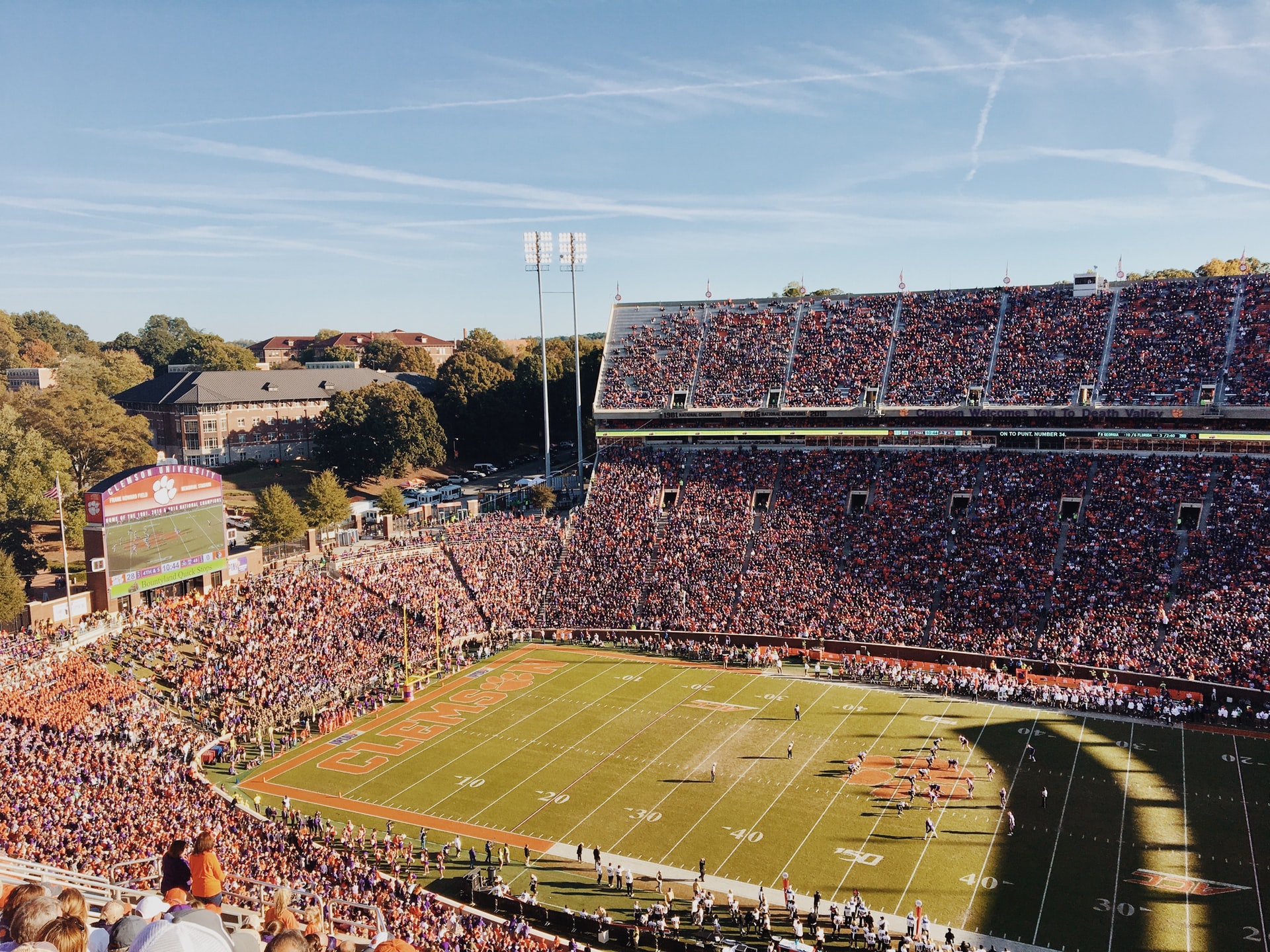College Sports Continue to Struggle in Light of COVID-19
October 30, 2020
written on behalf of Feigenbaum Law
We wrote a blog a few weeks ago about the state of professional sports in North America, With the NFL now the only active major professional league still playing, many sports fans are turning to US college sports for entertainment, but COVID-19 has continued to hamper these teams as well. We wanted to take a moment to check in on the problems being faced by this important feeder system to the professional leagues.
College Football’s Biggest Star Tests Positive for COVID-19
Trevor Lawrence, the star quarterback of South Carolina’s Clemson University’s football team, was reported to have tested positive for COVID-19 on October 29. While Lawrence’s symptoms were said to be mild according to an article on ESPN, he’ll have to miss some time while he remains in isolation.
Lawrence’s diagnosis raises questions about how the college football playoff committee will grade Clemson if they lose a game while Lawrence is sidelined. College football playoff teams are determined by the selection committee, which may penalize the (so far) undefeated Tigers should they lose a game in Lawrence’s absence.
Lawrence’s diagnosis is the latest in a series of setbacks for college football, which had a rocky start as teams and divisions could not align on when or how the season should start. With many teams now well into the season, some are still experiencing COVID-19 setbacks, including the University of Wisconsin’s ninth-ranked team, which has paused all football-related activity following a number of COVID-19 cases within the organization.
Smaller Sports Paying the Price
While high-profile sports such as football and basketball are facing difficult seasons, other less popular sports are facing elimination altogether. Given that many schools across the U.S. are holding classes remotely, thousands of students aren’t even present on campus, choosing instead to study from home.
Stanford University eliminated its rowing program, citing historical cost-overruns made worse by COVID-19. The Associated Press published a list of four-year college athletic teams that have been eliminated due to budget cuts, or in some cases, school closures.
Stanford has cut 11 sports in total, making it the school with the most cuts. Across the United States, more than 1,500 athletes will not play their sport this year. An article on NBC News points out that this could have a serious impact on the next Olympics, which often relies on college athletics to develop talent in sports. Some sports even require athletes to have played in college in order to qualify for Olympic teams, such as volleyball.
Many winter sports will not be happening this year. As a result, the NCAA announced that winter athletes will have an additional year of eligibility for play. This is in addition to extra years of eligibility already offered to spring and fall sports players. The NCAA board of governors is also considering allowing players to switch schools more than once without penalty; something that has not previously been permitted.
Assistance for Players
The NCAA board of governors is also discussing other ways to assist athletes, including the possibility of allowing players to earn money through channels that would previously have been prohibited, such as through personal endorsements, autographed pictures, commercials, or teaching camps and lessons. An article published on ESPN states,
“NCAA’s board of governors told each division of the association to revise its rules restricting athletes from making money by selling the rights to their [name, image and likeness]. Under pressure from state and federal lawmakers, the association is expected to vote on changes that would go into effect no later than next fall.”
At Feigenbaum Law, our team of professionals offers a full range of services to clients in the sports and entertainment industries including agents and coaches, especially as it relates to cross-border matters and financial arrangements. We take a personal approach with our clients, understanding and meeting their unique needs. Contact us online, or call us at (416) 777-8433 or toll-free at (877) 275-4792 to learn more about how we can help.





